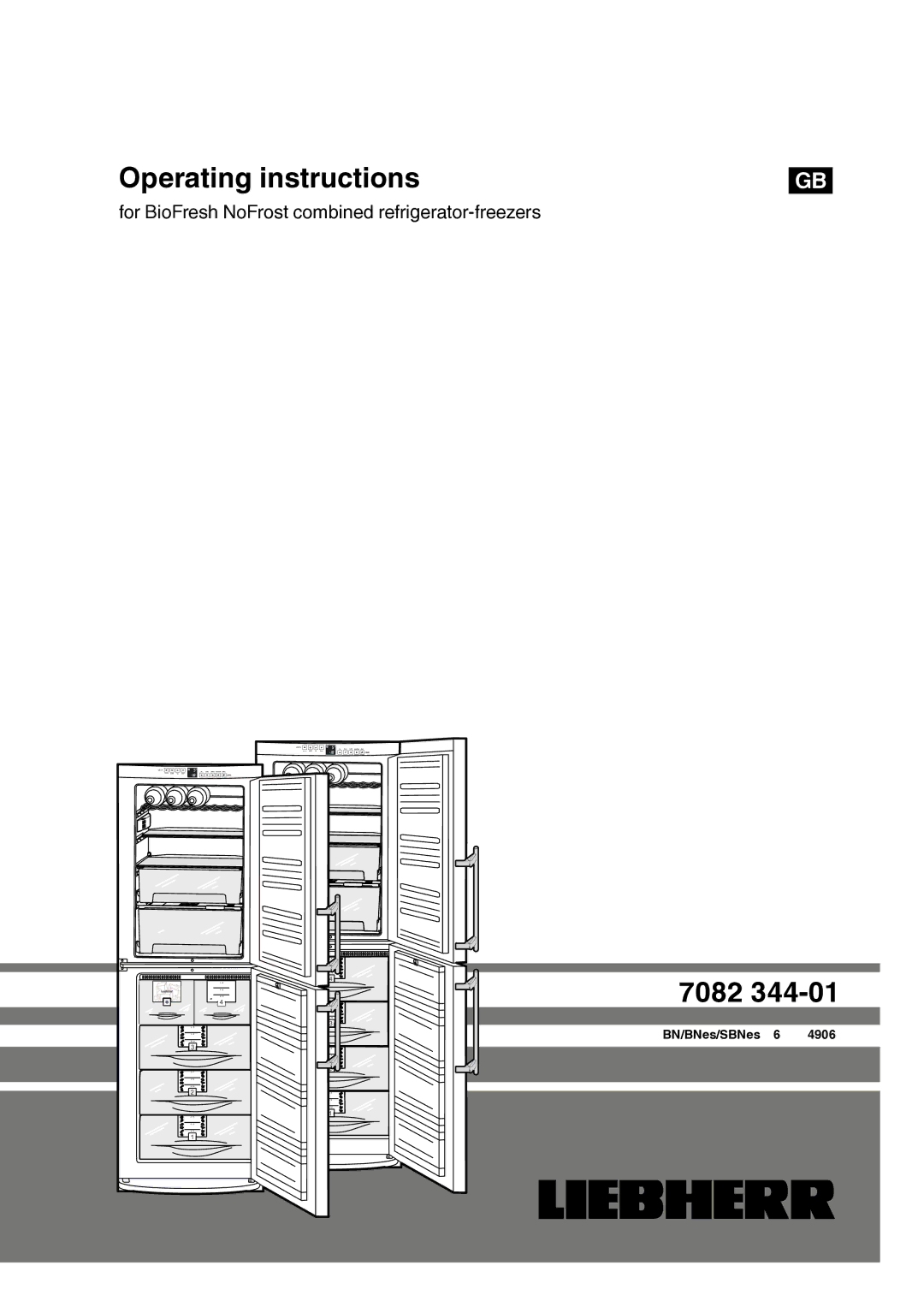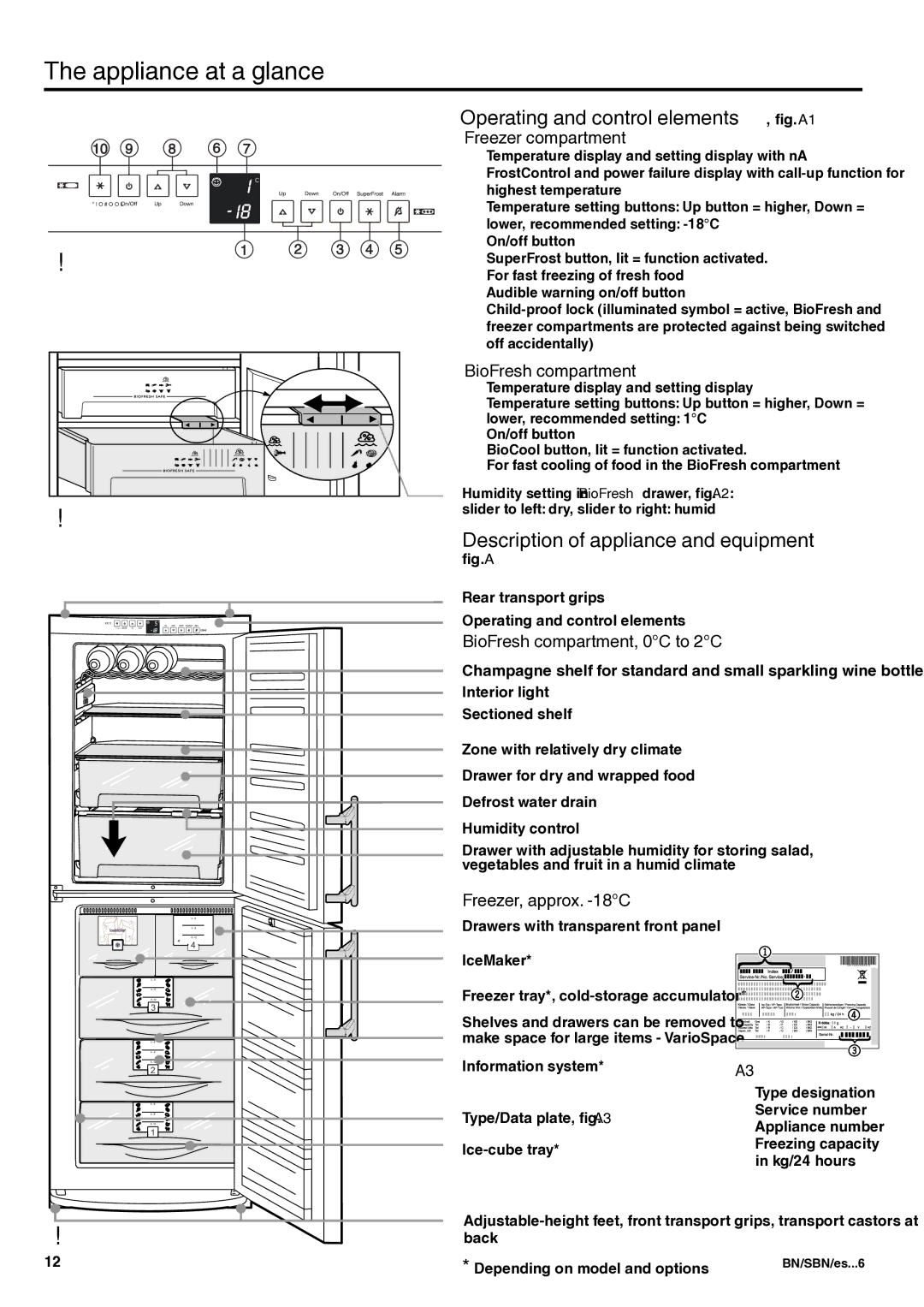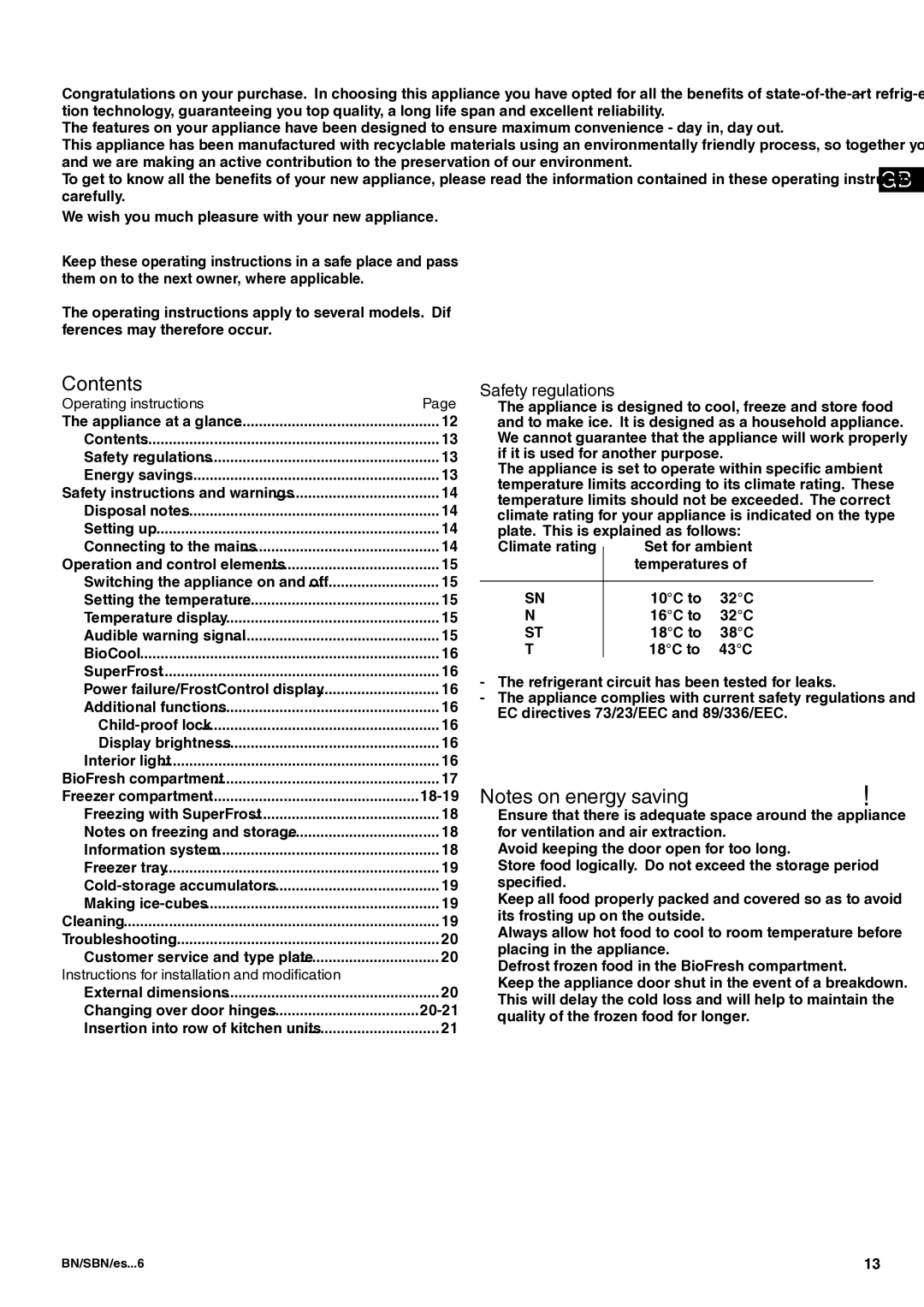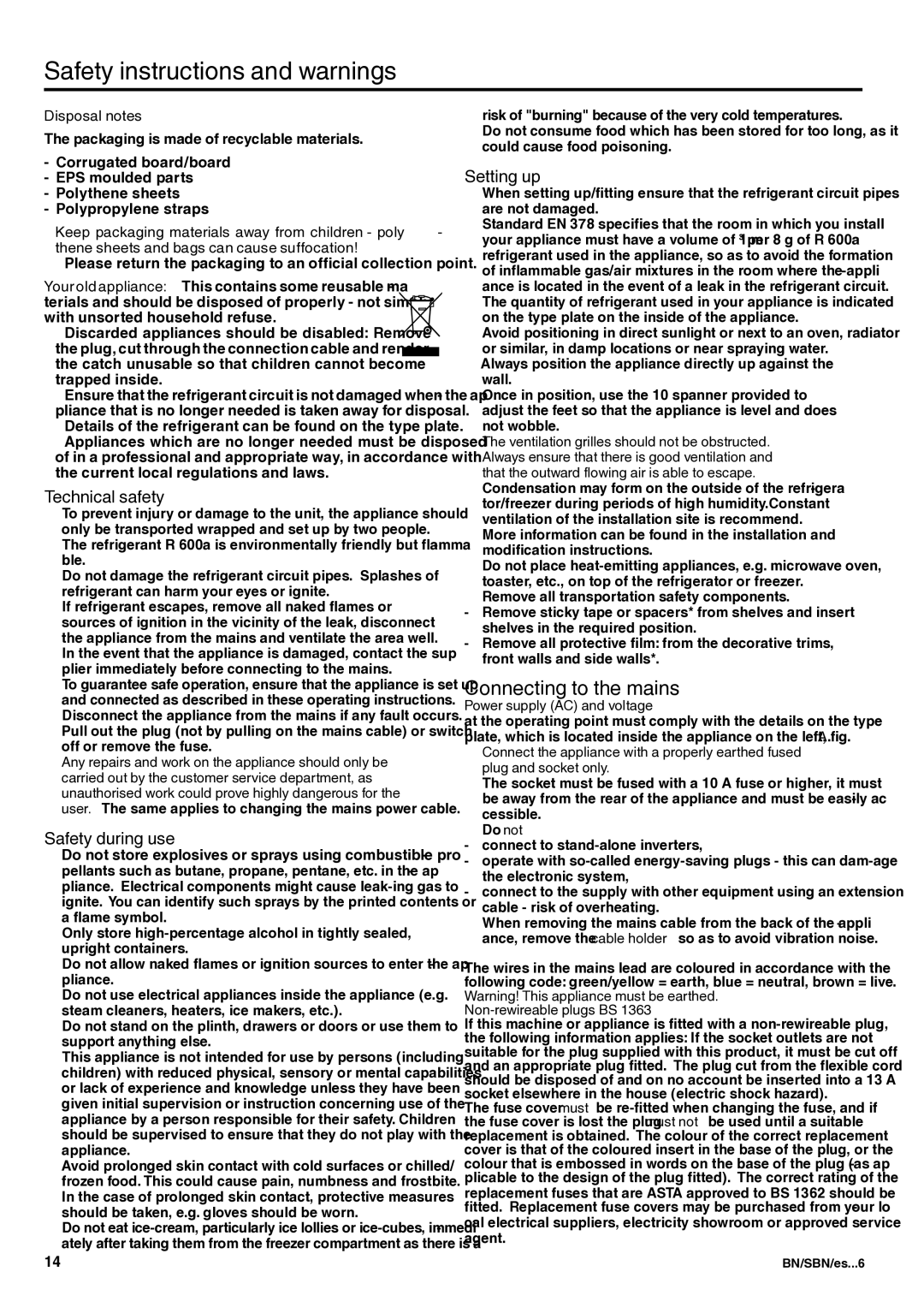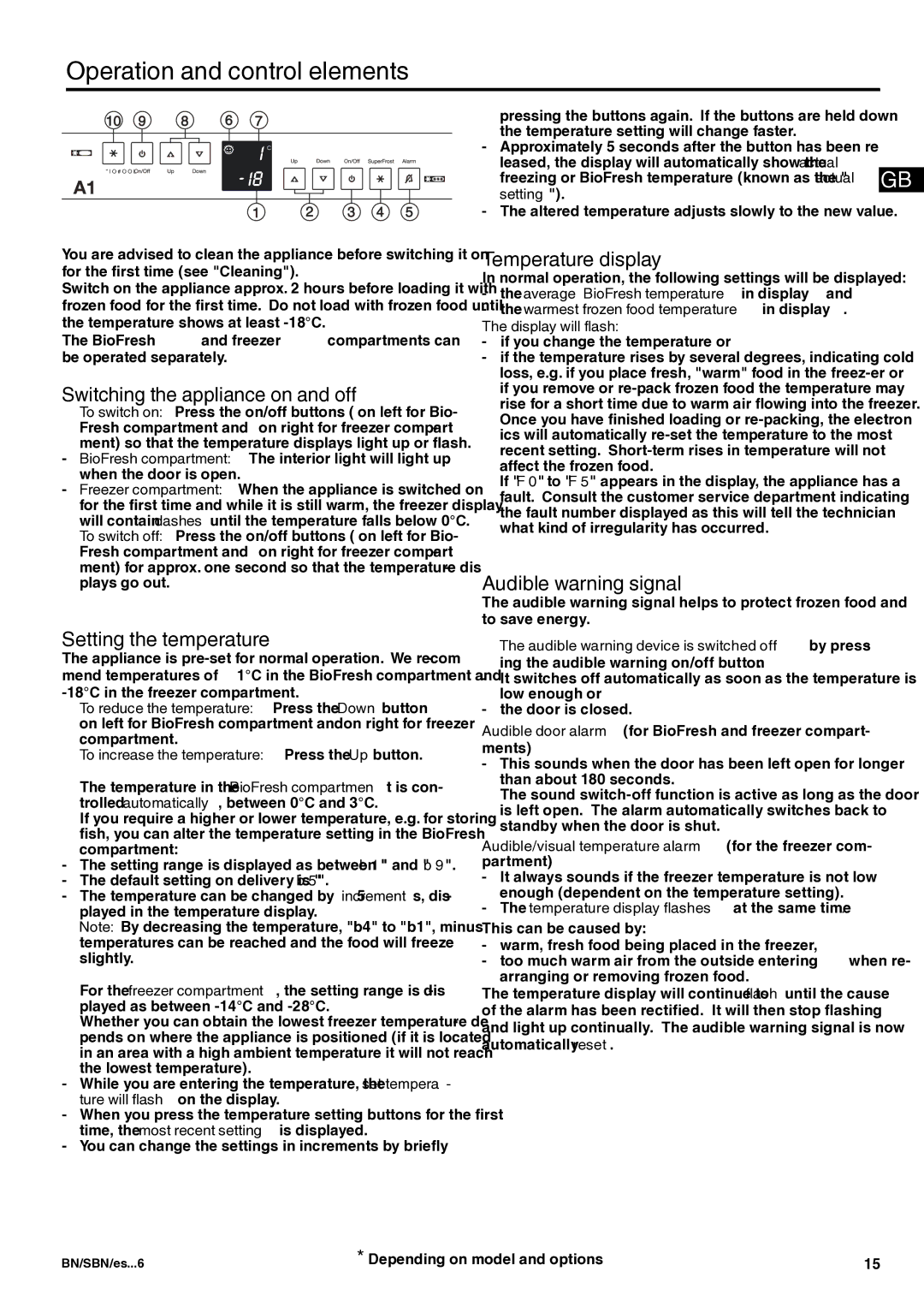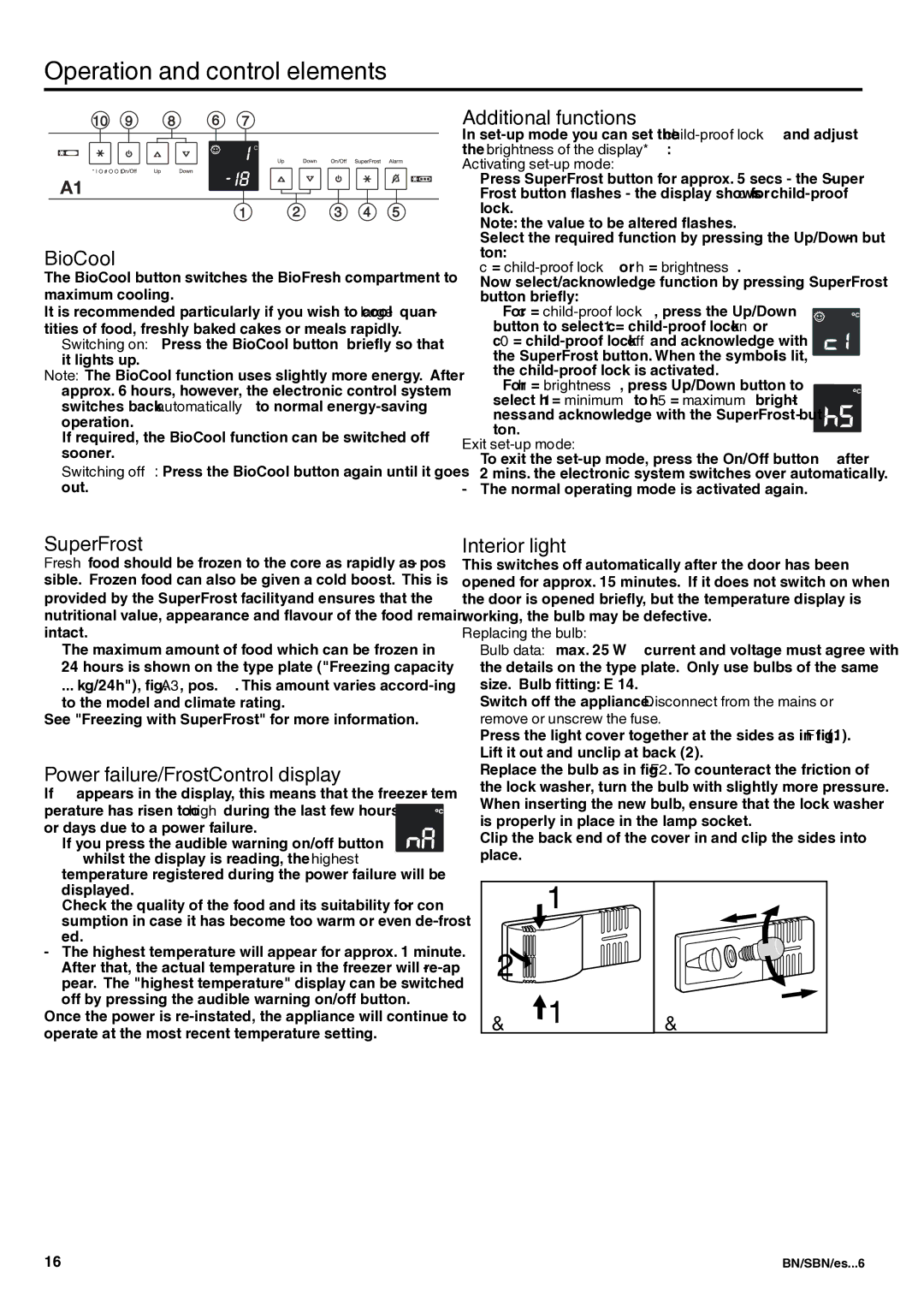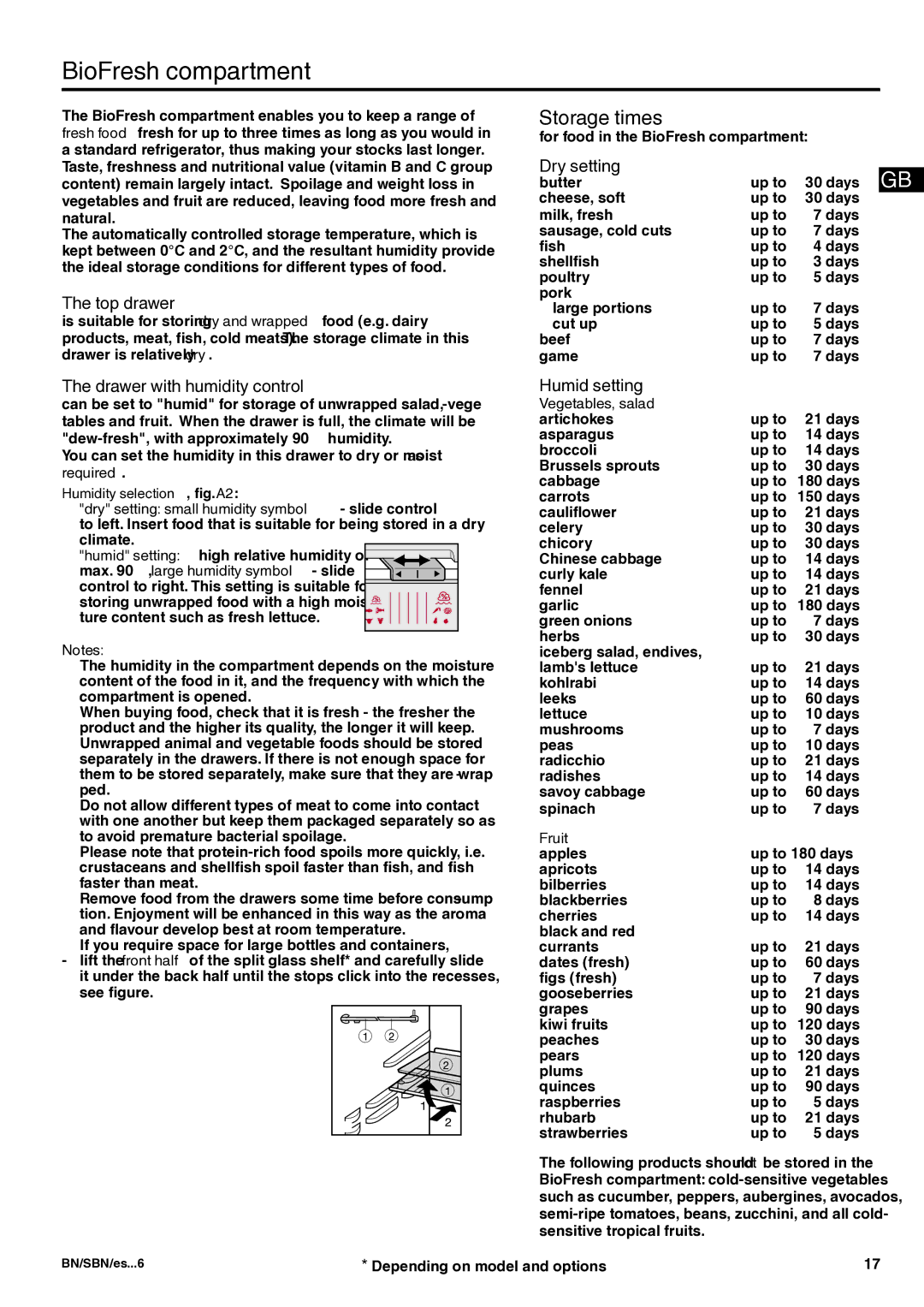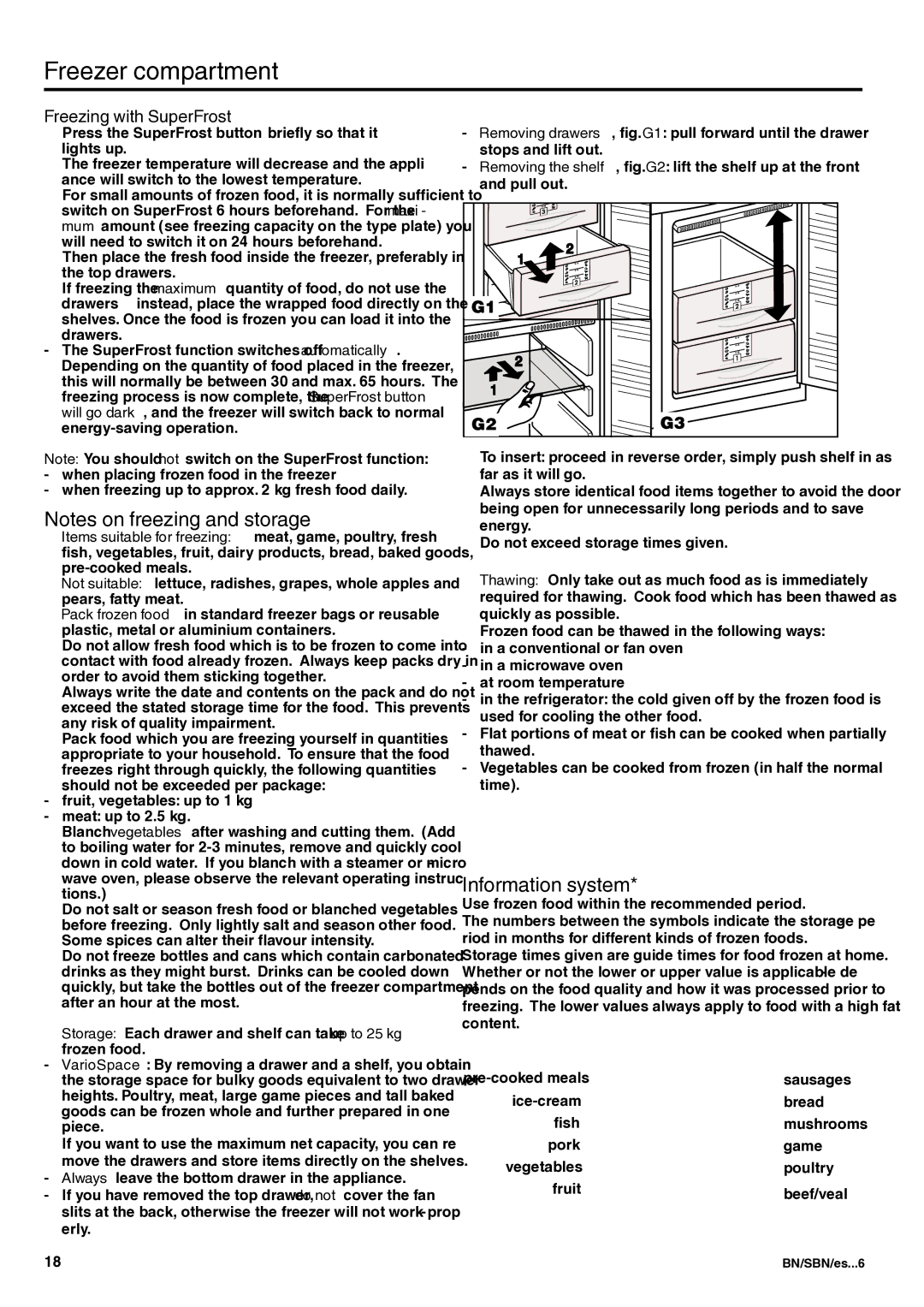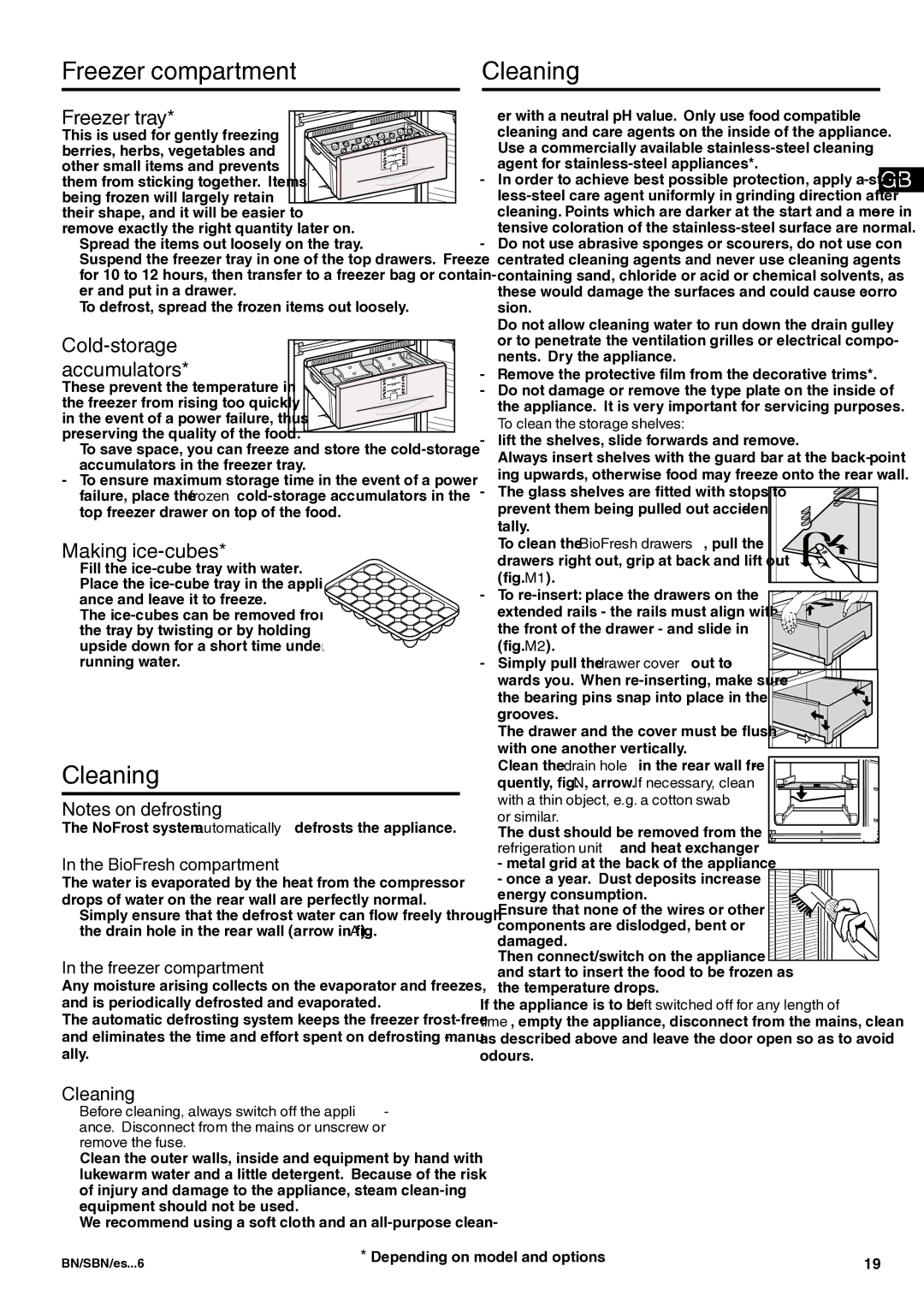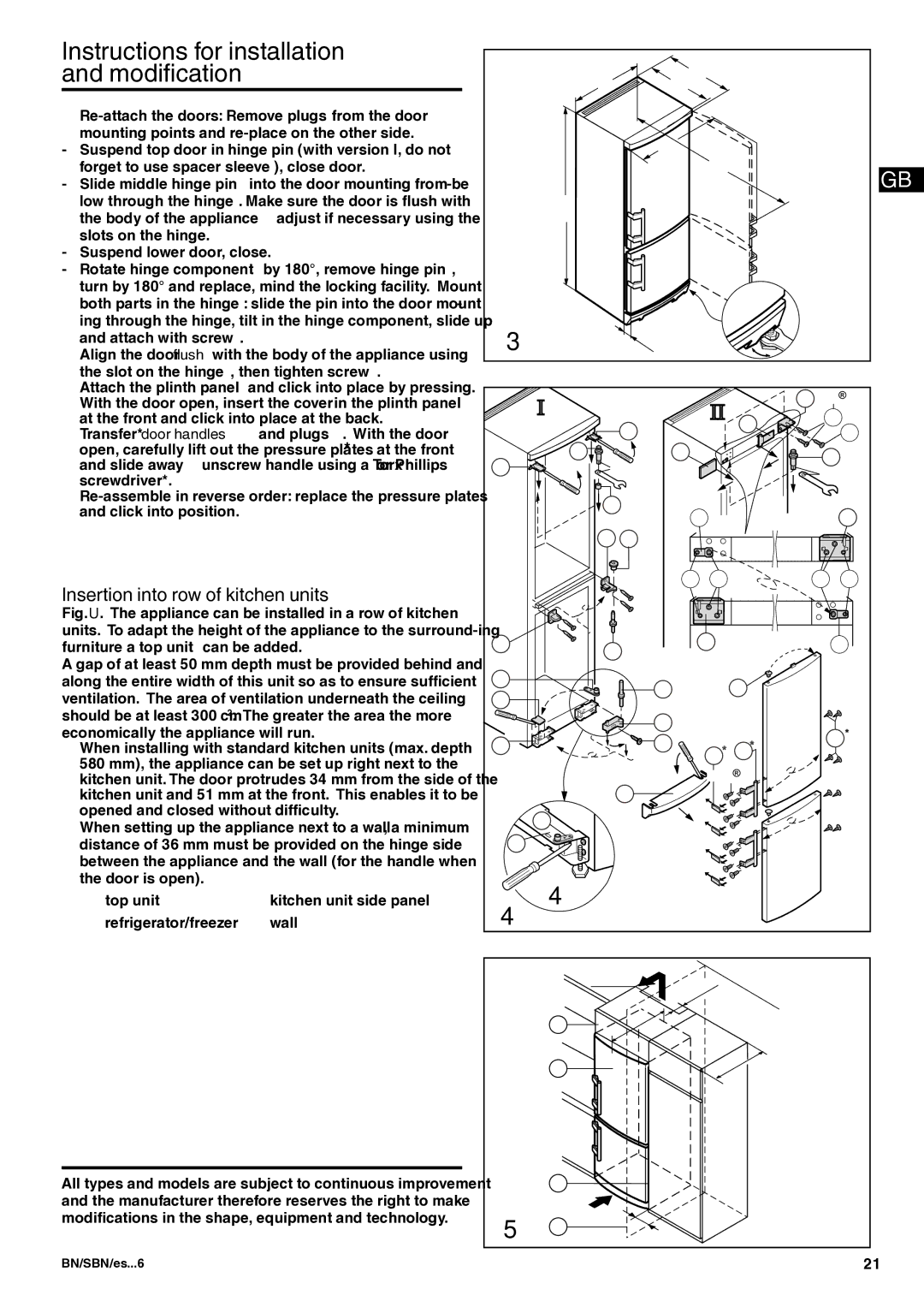Troubleshooting
Your appliance is designed and manufactured for a long life |
span and reliable operation. |
If a malfunction nonetheless occurs during operation, check |
whether it is due to an operating error. Please note that even |
during the warranty period the resultant servicing costs in this |
case will have to be borne by the owner. |
You may be able to rectify the following faults by checking the |
possible causes yourself: |
Malfunction | Possible cause and remedy |
________________________________________________
Appliance does not work, display is off - Is the appliance switched on properly?
- Is the mains plug properly inserted in the socket? - Is the socket fuse intact?
The interior light does not come on
- Is the BioFresh compartment switched on?
- Has the door been open for more than 15 minutes?
- The bulb is defective. Change the bulb as described in "Interior light".
Loud running noise
- Is the appliance standing firmly on the floor, or does the compressor cause nearby items of furniture or objects to vibrate? If necessary, move the appliance slightly, align by adjusting the adjustable feet, or move bottles and contain- ers apart.
- Burbling noises are normal. These are caused by the refrigerant flowing round the refrigerant circuit.
A short clicking sound: This will be heard whenever the refrigeration unit (the motor) switches on or off auto-mati- cally.
Motor noise: This will be slightly louder for a brief period when the refrigeration unit switches on. The refrigerat- ing capacity will increase when the SuperFrost function is activated, fresh food has just been placed in the appliance or the door has been left open for a while.
The audible warning signal sounds, the temperature is not cold enough
- Have you put too much fresh food into the freezer without activating SuperFrost? (See "SuperFrost")
- Does the door close properly?
- Is the appliance sufficiently well ventilated? Clear ventilation grilles if necessary.
- Is the ambient temperature too hot? (See "Safety regulations")
- Has the appliance been opened too often or left open too long?
- If applicable, wait until the appliance reaches the required temperature itself.
appears in the display
- There has been a power failure; proceed as described in "Power failure/FrostControl display".
The outside of the appliance may feel warm in places - That is quite normal. The heat from the cooling circuit is
used to avoid the formation of condensate.
Customer service and type plate
If none of the above causes apply and you cannot rec- tify the fault yourself, or if the temperature display reads "F 0" to " F 5", this means that there is a fault. Please contact your nearest customer service department (see en- closed list for addresses). Give the fault number displayed, together with the
type designation 1,
service number 2 and appliance number 3
as given on the type plate, so
as to ensure rapid, accurate 















































 servicing. The type plate is
servicing. The type plate is  located inside the appliance on
located inside the appliance on 











 the left-hand side.
the left-hand side.
 Leave the appliance shut until
Leave the appliance shut until  the customer service engineer
the customer service engineer
arrives so as to prevent any further cold loss.
Instructions for installation and modification
Installation instructions:
- Do not install the appliance directly next to another refrig- erator or freezer. This is important to prevent condensation and consequential damage resulting from it.
- This does not apply to Side-by-Side models (SBS). They are designed for Side-by-Side installation with another refrigerator/freezer.
The "Installation instructions for Side-by-Side combina- tions" are supplied in the accessories bag for the SBS freezer or the appliance with a freezer compartment.
Installation dimensions
For the external dimensions of the appliance, see fig. S.
Changing over door hinges
On appliances which are intended for individual installation the door hinges can be changed from one side to the other. On SBS appliances in stainless steel finish, which are de- signed for Side-by-Side installation, the door hinges must not be transferred to the other side!
W Only change over door hinges when mains plug is discon- nected!
W Fig. T. With the door open, lever out plinth panel 1 on the hinge side with a screwdriver and remove from front.
- Lever out cover 2 with a screwdriver. Close door. - Unscrew screw M5 3.
W Pull hinge component 4 with hinge pin 5 out from under- neath and remove.
- Open door, lift out at bottom and remove.
- Pull middle hinge pin 6 out from underneath.
- Tilt out top door and lift off from underneath (with version I, do not lose spacer sleeve 9).
W Transfer all hinge components onto the other side: W Top: depending on version, proceed as follows:
Version I (visible operating panel): Lever out covers 8 with a screwdriver at the front and remove at an angle from be- low. Remove hinge pin 7 and insert on the opposite side. Use the hexagon socket on the open-ended spanner pro- vided (spanner width 5). Fit covers 8 again: insert at rear and click into place at front.
Version II (concealed operating panel): Lift up cover 8 on handle side, push outwards; lift up cover on hinge side and pull off.
- Unscrew earthing plate cm: first earthing screw cl, then inner retaining screw cq.
- Unscrew hinge 9: first undo earthing screw cl, then re- taining screws cq. Fit hinge 9 to opposite side: for easy assembly, fit hinge from above and first tighten with the up- per retaining screw cq M5, then screw cq and finally earth- ing screw cl M4.
- Turn earthing plate cm through 180° and screw tight again on the new handle side: first retaining screw cq, then earth- ing screw cl.
- Insert hinge pin 7 in the other retaining hole. Use the hex- agon socket on the open-ended spanner provided (span- ner width 5).
- Fit covers 8 again: insert hinge-side cover by sliding out- wards and click into position; insert handle-side cover by sliding inwards and click into position.
W Centre: Change over cover bl with hinge bm: unscrew screws, lift off cover bl and hinge bm to the side, turn through 180° and replace on the other side, remove hinge bushing bn and re-insert from top.
W Bottom: Using a screwdriver, remove the spacer bo and replace on the other side.
